TUESDAY EDITORIAL
We need more than just incarceration to stem the tide of gender-based violence
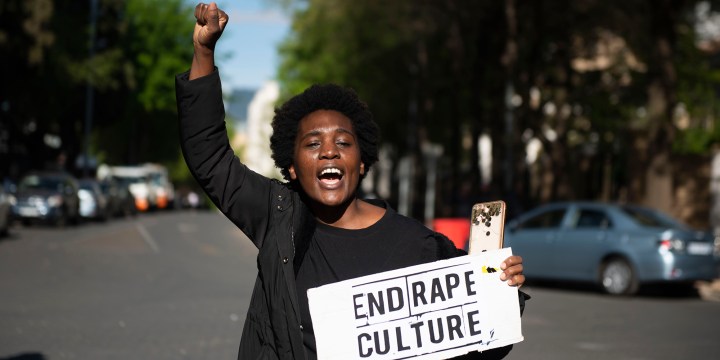
The strategy to combat gender-based violence needs to shift to preventative rather than punitive measures, otherwise it will continue unabated.
Ironically, the first time that 16 Days of Activism for No Violence Against Women came to my consciousness was as an intern in 2001 when I was working at a Department of Justice and Constitutional Development event of 16 days presided over by Jacob Zuma. Little did I know that just a few years later the then deputy president and “patron” of 16 Days of Activism would himself be facing his own gender-based violence (GBV) charges for the rape of Fezekile “Khwezi” Ntsukela, a daughter of one of his close friends.
Every year since this consciousness, the incidents of GBV have grown more gruesome, emboldened and commonplace. Just last month a young man studying at the University of the Western Cape stabbed his wife at her Cape Peninsula University of Technology residence, in full view of other students. It was also reported that, at the time, he was facing charges of rape against someone else, compunding his GBV crime charges.
Sunday, 10 December is the last day of 16 days of Activism, which is a significant day both in the South Africa and international context. It is also the International Human Rights Day, a day chosen to sign South Africa’s Constitution into effect in 1996, as well as the 25th anniversary of the Treatment Action Campaign, South Africa’s foremost HIV/Aids activist organisation.
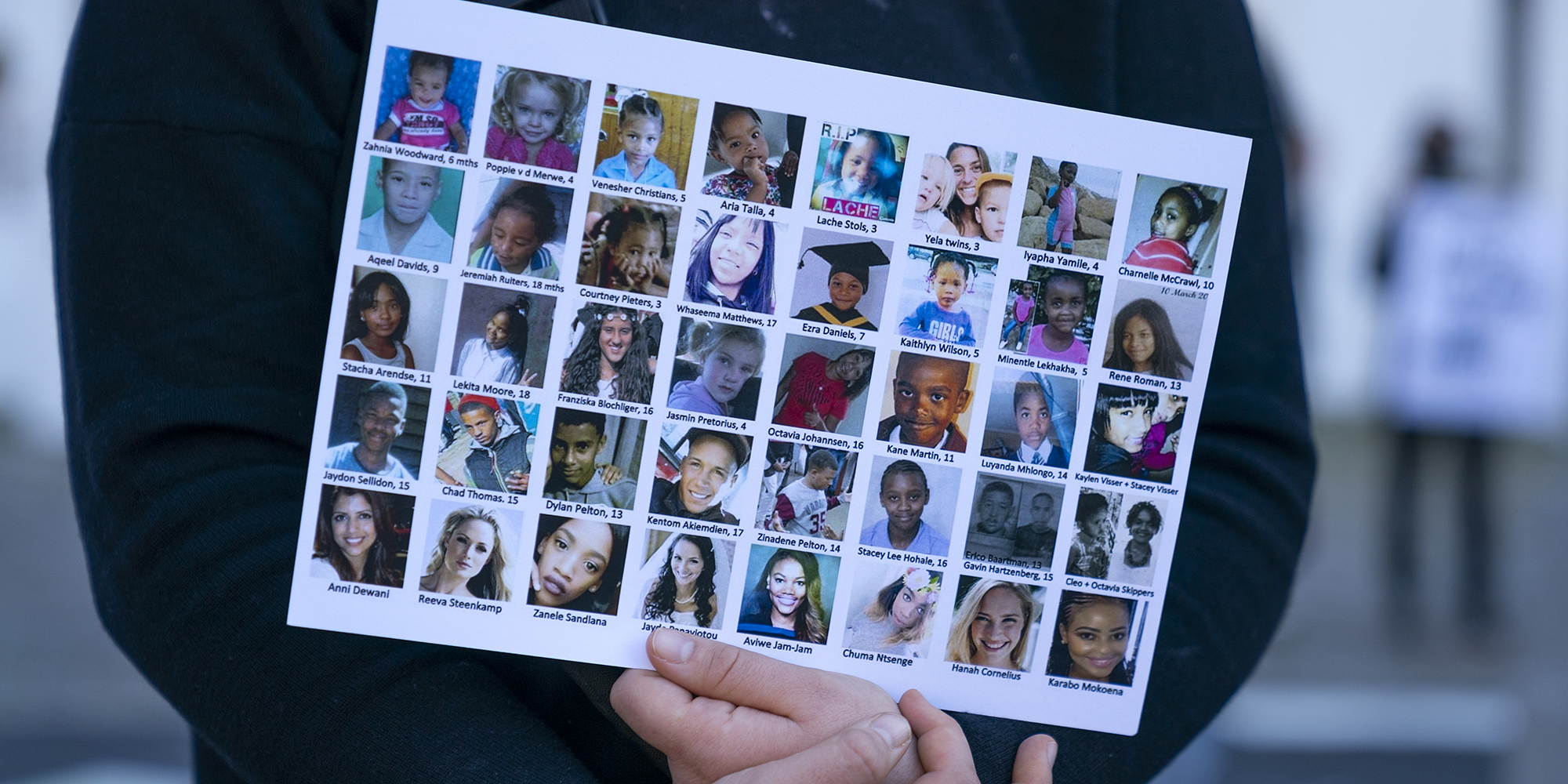
A woman holds a card with images of alleged victims of gender-based violence. (Photo: EPA-EFE / Nic Bothma)
So, what do all these significant dates and movements have in common? Human rights, that’s what. They are a reflection of our society’s aspiration to be a more equal and just society that recognises the sanctity of being human and the need for the protection of each others’ dignity and bodily autonomy. The dates, however, are simply markers of commemoration and reflection on progress and should be seen as a call to everyday and not annual action.
Having said this, it is sad that we still need to assert that women and children’s rights are human rights and should not be seen as separate but rather affirmed because of their historical and current violations. In fact, to show the inextricable relationship to all the other rights they have been spotlighted in the United Nations’ Social Development Goals as crucial to well-adjusted and thriving societies. However, the evidence shows that our society is still far from accepting this truth, at the rate violations still rapaciously persist.
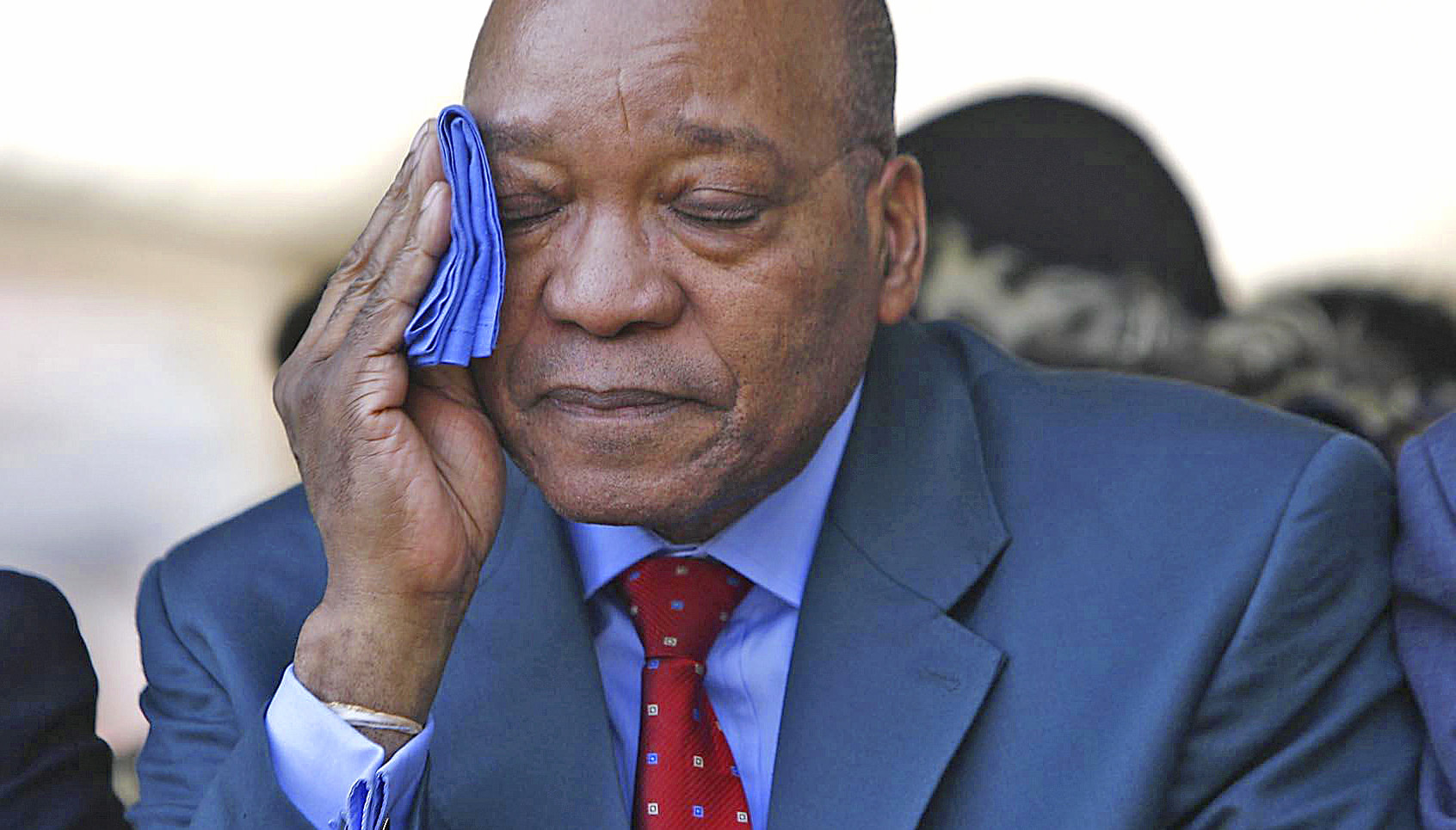
Former president Jacob Zuma was found not guilty of rape in 2006. (Photo: Gallo Images / Felix Dlangamandla)
What do the stats say?
Reporting on the second-quarter crime statistics, Police Minister Bheki Cele said that “disturbingly, the crime figures show that far too many women and children in this country are not safe around people that they know and trust, and at times those that they love and in the places where they are supposed to be safe.
“Between July and September 2023, 1,514 incidents of attempted murder, involving female victims, were reported. Furthermore, females were victims in 14,401 assault GBH incidents reported to the police during the reporting period.
“Children have not been spared from the brutal attacks and abuse – 293 were killed between July and September 2023. In the same period, 361 incidents of attempted murder and 1,820 of assault GBH were perpetrated against children.”
He said “10,516 rape incidents were reported to the SAPS between July and September this year”, and 4,726 rape incidents took place at either the home of the rape victim or the home of the perpetrator which are known to the victim, such as a family member, a friend or a neighbour”.
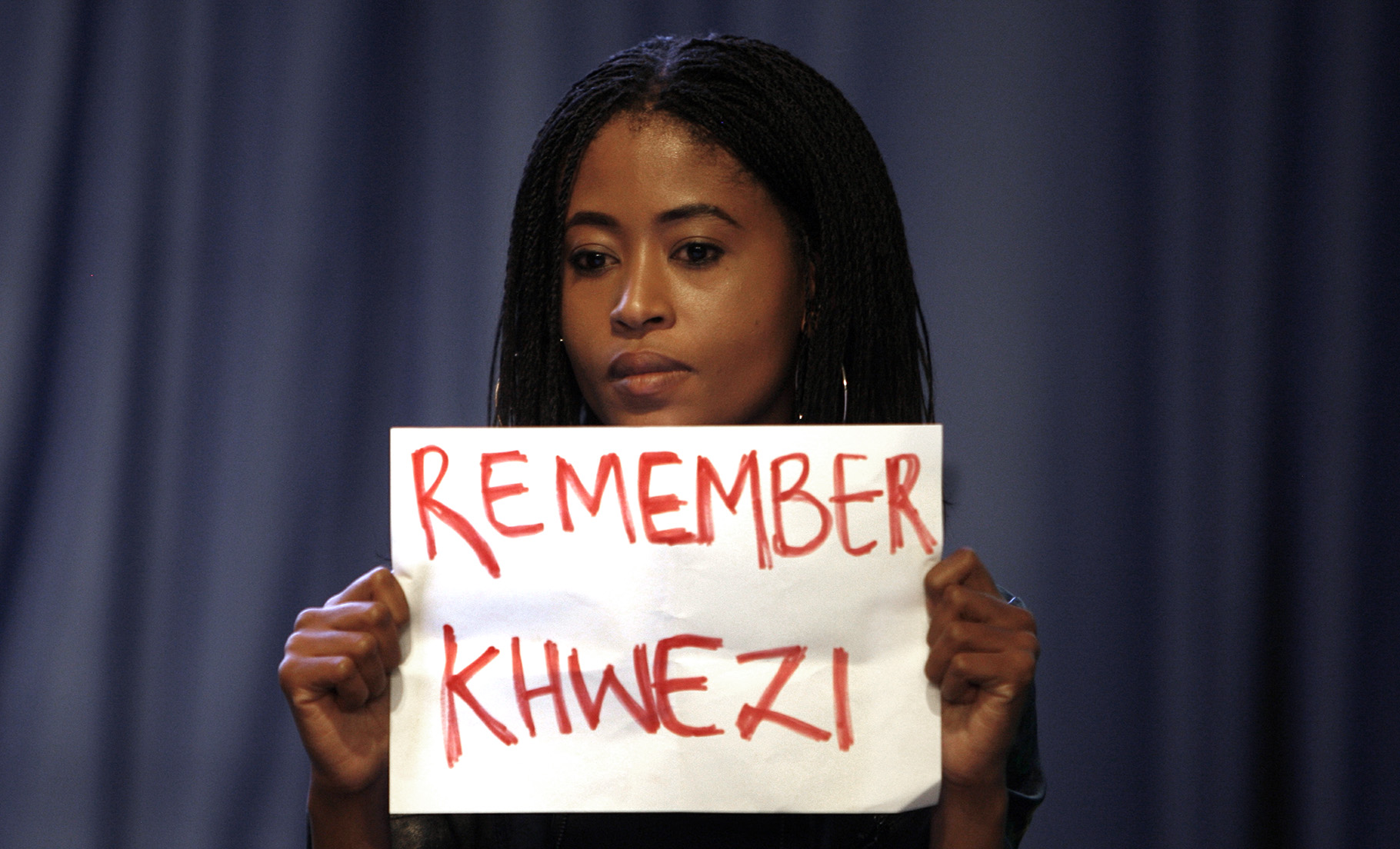
A young woman holds up a poster during President Jacob Zuma’s speech at the IEC briefing in Pretoria after the local government elections on 6 August 2016. Four women staged a silent anti-rape silent protest directed at Zuma. (Photo: Gallo Images / Sowetan / Mabuti Kali)
What should we be looking to?
While activists continue to call for the criminalisation and prosecution of GBV offenders, the stats show that prosecution and incarceration are not enough. This is particularly in light of the fact that South Africa has been found to have one of the world’s highest recidivism rates. A recent report by North-West University found that nine out of 10 criminal offenders in South Africa reoffend.
The report makes the case that South Africa could learn from the example of Finland which managed to lower incidents of reoffending to just 30%. It also says that if the Department of Correctional Services is to achieve any success in rehabilitating offenders it has to focus on “the moral-creating and value-shaping effect of punishment, rather than its power for retribution.” That is to say that punishment alone is not enough for reform, but that a better understanding of offenders’ circumstances that led to the offence and how to address these is imperative.
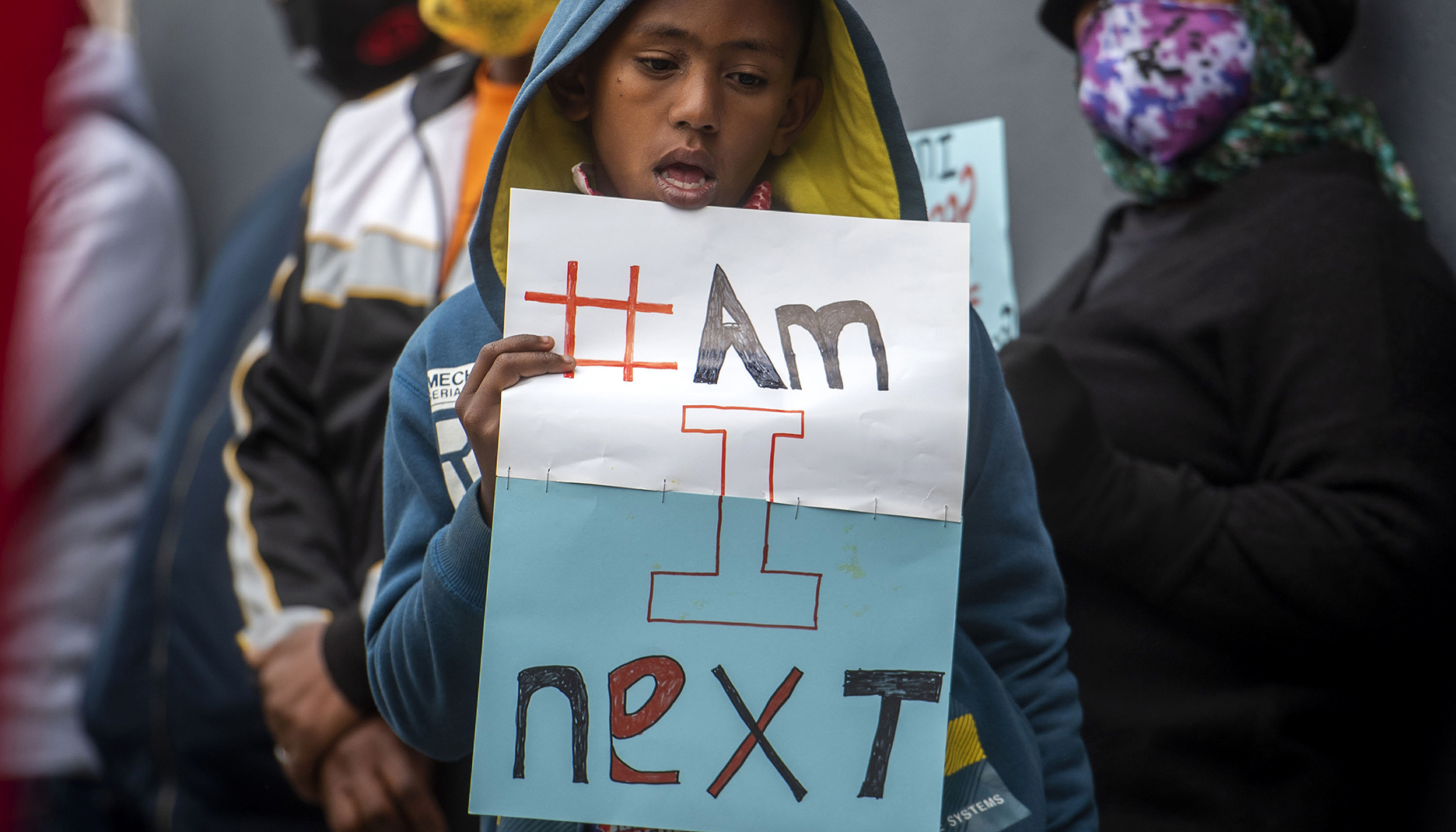
Eersterust residents take part in the Stop Violence Against Women March in Pretoria on 16 June 2020, following the discovery of the the body of 42-year-old Evelyn de Kock, who had been stabbed to death outside a room in Eersterust. (Photo: Gallo Images / Alet Pretorius)
A societal conversation
What has been notable over the past few years, however, is an increase in men speaking out against GBV and taking a stance to stem the tide, where previously no such conversation existed.
What is emerging from this action is the creation of space for dialogue and introspection as to why men perpetrate violence against women, at the heart of which are cultural norms and conditioning as well as the economically transactive nature of relationships, with women being dependent on men financially.
Sonke Gender Justice has been particularly vocal in supporting these dialogues and asserts that the conversation involving men and boys should not be a reactive one but inclusive, stating that “programmes/interventions need to be gender transformative and hence promote equitable relationships, challenge male gender norms and change gender relations”. Doing this takes a more preventative approach as opposed to intervention at the tail end of the violence, which is punishment for a crime already perpetrated.
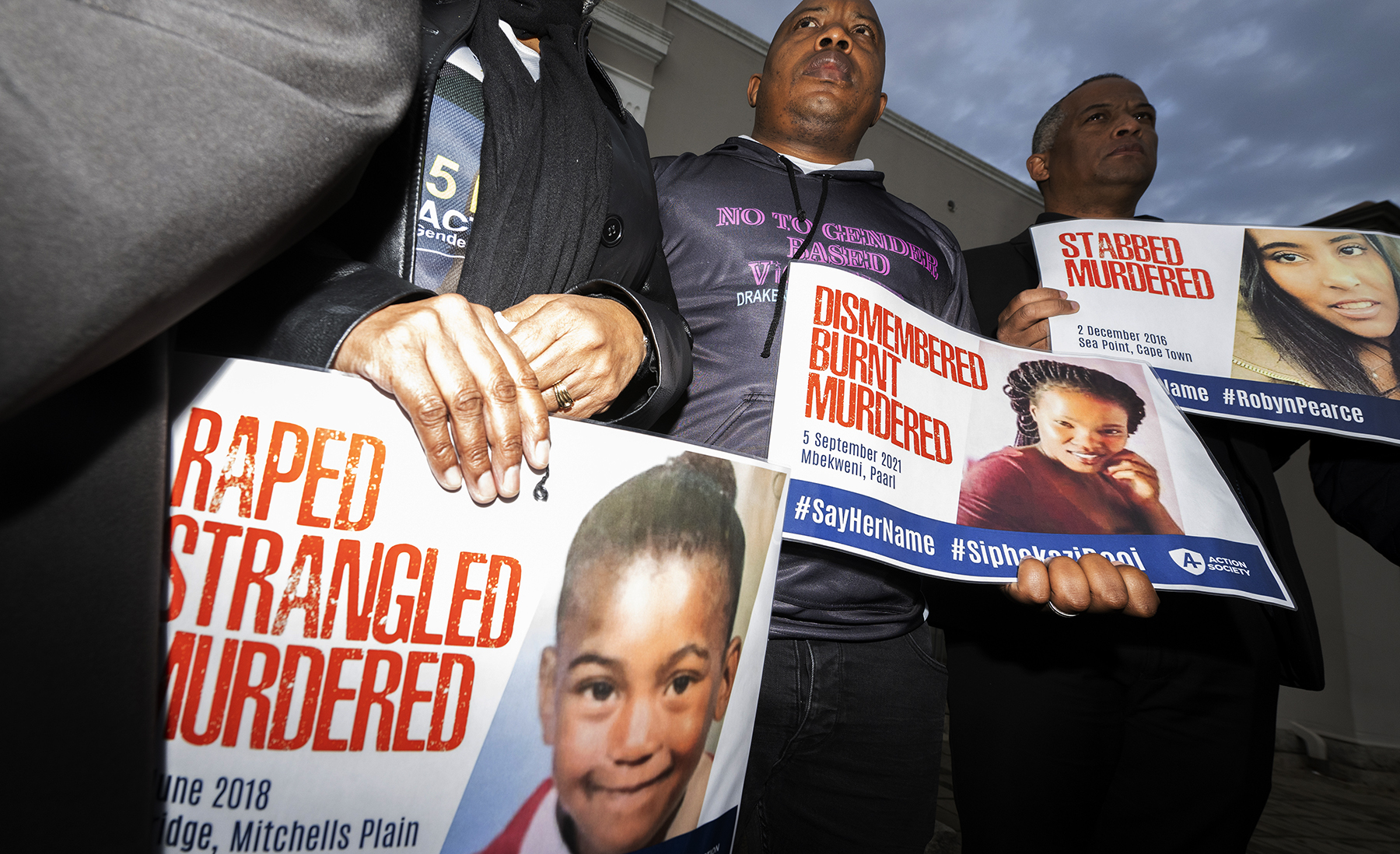
The Action Society civil rights group held a peaceful demonstration against gender-based violence outside the Paarl Regional Court on 27 June 2023, when Sithobele ‘Rasta’ Qebe appeared on charges related to the murder of Siphokazi Booi in 2021. (Photo: Gallo Images / Die Burger / Jaco Marais)
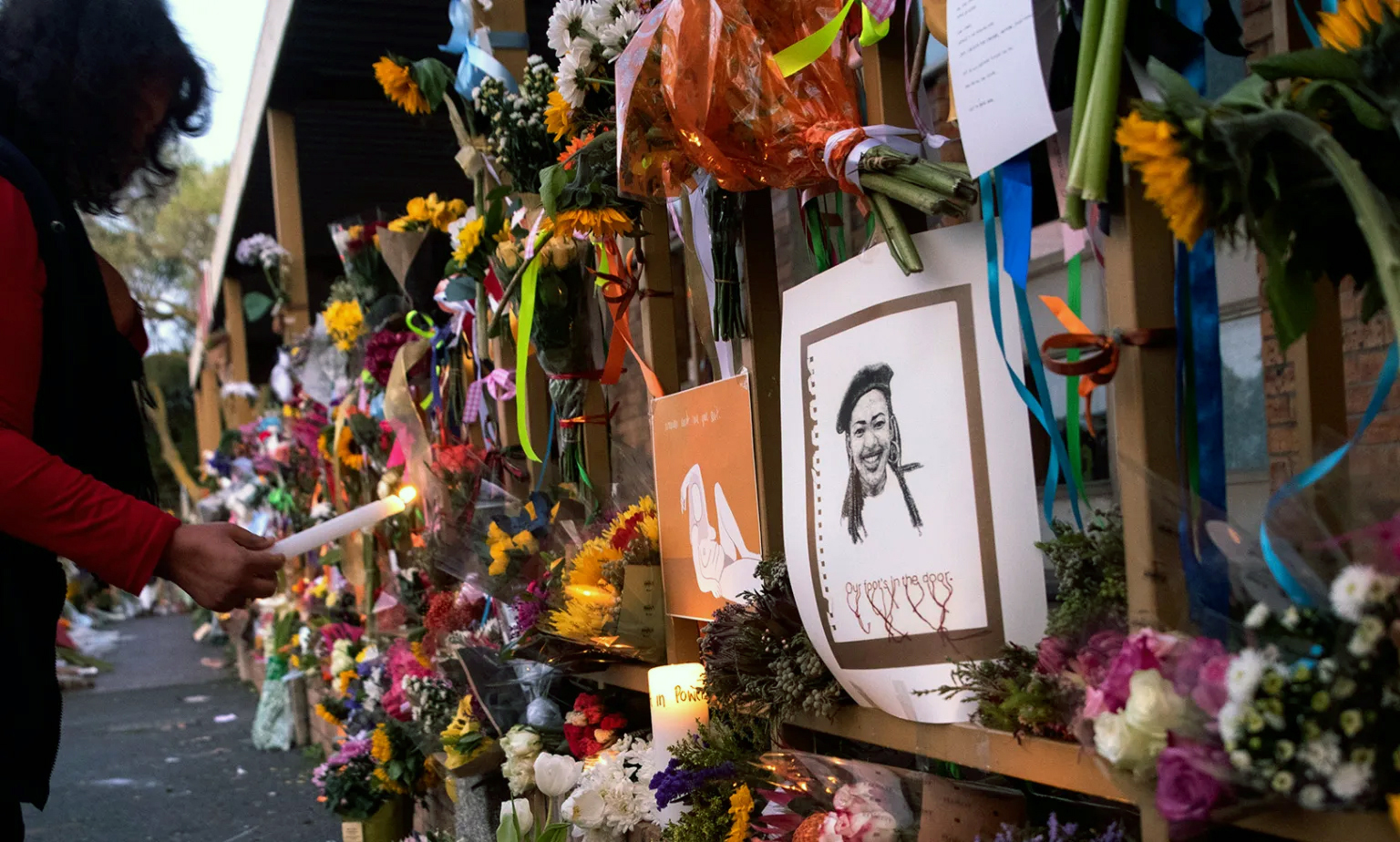
A woman lights candles at the Claremont Post Office in Cape Town where a year ago, on 24 August 2019, University of Cape Town student Uyinene Mrwetyana was brutally raped and murdered. (Photo: Gallo Images / Brenton Geach)
The government too needs to play a more responsive role in this conversation that makes women and children less vulnerable to living under conditions of abuse and violence. And this is by ensuring that it provides services such as access to health, basic education and social services, which has come under scrutiny in light of Treasury’s intended austerity measures.
In a recent article in Daily Maverick, Zukiswa Kota, the programme manager at the Public Service Accountability Monitor, and Thokozile Madonko, a researcher with the Southern Centre for Inequality Studies at Wits University, argued:
“When services are withdrawn due to budget cuts, this often increases financial burdens and obligations for households, in particular women and girls, in sustaining care. These are households that can least afford a reduction in care support, growing inequality and diminished quality of life.”
Read more in Daily Maverick: Making cents of gender-responsive budgeting — reflections on the 2023 Medium-Term Budget and Budget 2024
These services are critical to ensuring that the material conditions that men, women and children find themselves in, which breed violence, can in fact change. GBV will continue unabated if the strategy to combat it does not shift to preventative rather than punitive measures that assume it is a foregone conclusion that GBV is part and parcel of our society. DM




















There needs to be a multipronged approach. You cannot have the carrot without the stick too. The problem with just having social interventions alone is that the men and boys who perpertrate crime and gender based violence are long gone to be reformed and just pressure or pass on their beliefs to young men who carry on the cycle. Because it has been tried before.
There needs to be a balance between consequence, fear and reform. Consequence such as tougher measures and punishment for those who cant be reformed and fear for those can be reformed so to encourage them to seek intervention and thereupetic help. Both need to exist in order to eliminate the epidemic of GBV and criminal violence as a whole.
GBV is not only perpetrated against women by men, but also against women by other women- who willingly participate in harassment. There is a huge gap in the understanding of what is really happening in our society and the people who speak out are harassed. There are other ways of harassing people that no one addresses. Has anyone ever investigated what role does women play when they are gang affiliated? What happens to gangsters when they become old….they form part of our senior citizens…but it does not mean that they are not still active members…I can only sigh and wait for the day that AI can state the thing that people don’t know.